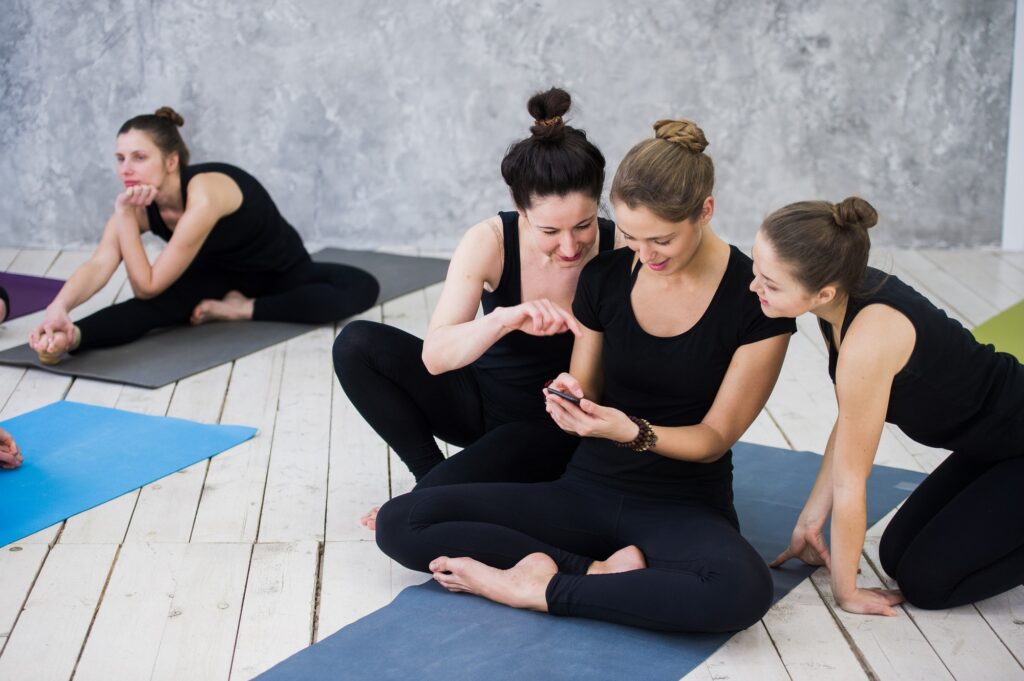Hey there! If you’re diving into this, chances are you or someone close to you identifies with the quieter side of the spectrum. Introverts, am I right? We’re the ones who thrive in our personal space, cherish deep conversations over small talk, and often find the social whirlwind a bit overwhelming. But when it comes to romantic relationships, being an introvert can feel like you’re trying to read a map without the legend. It’s tricky, but oh-so-rewarding once you get the hang of it.
In this guide, we’ll be exploring the common introvert relationship problems and offering some tips and tricks to navigate them. Whether you’re an introvert looking for love or already in a relationship with one, let’s dive into how we can make our quiet side work for us in love. But remember, every person is different so take these suggestions with a grain of salt and always communicate with your partner about what works best for both of you.

The Struggle With Communication
One of the biggest challenges introverts face in relationships is communicating their needs and feelings effectively. As introverts, we tend to be more introspective and reflective, which can make it difficult to express ourselves verbally. This can lead to misunderstandings and feelings of being unheard or misunderstood by our partners.
To combat this, it’s important for introverts to find alternative ways of communication that feel more comfortable and natural. This could be through writing letters or notes, having deep conversations during one-on-one time, or even using non-verbal cues such as body language and eye contact.
It’s also helpful to establish a safe and open space for communication in your relationship. This means creating a judgment-free zone where both partners can express themselves freely without fear of criticism or ridicule.
Remember, communication is key to any successful relationship and finding the right balance that works for both introverts and extroverts is crucial.

The Pressure to Socialize
Introverts often struggle with the societal expectation to constantly engage in social interactions and be outgoing. This pressure can be magnified in a romantic relationship, especially if your partner is more extroverted.
It’s important to have open and honest conversations with your partner about your need for alone time and space. Let them know that it’s not personal and that you just recharge differently than they do.Also, try to find a compromise that works for both of you. This could mean setting aside specific times for social activities and also carving out alone time for yourself.
Feeling Drained in Group Settings
As introverts, we often find ourselves feeling drained and overwhelmed in large group settings. This can be especially challenging in a relationship if your partner is more extroverted and enjoys these types of gatherings.
To combat this problem, it’s important to set boundaries and communicate with your partner about what feels comfortable for you. Maybe you can agree on attending social events together but also having an exit plan in case you need a break.
Additionally, try to find activities that both of you enjoy and feel energized by. This could be something as simple as going for a quiet walk or watching a movie at home.
The Need for Alone Time
One of the most important things introverts need in a relationship is alone time. This doesn’t mean that we don’t love our partners, but rather that we recharge and process information differently than extroverts.
It’s important to communicate this need with your partner and find ways to incorporate it into your relationship without causing conflict. Maybe you can schedule alone time for yourself while your partner spends time with their friends, or have a designated quiet space in your shared living area.
Remember, alone time is crucial for introverts to recharge and feel balanced in a relationship.

The Introvert-Extrovert Relationship Dynamic
Navigating the dance floor of an introvert-extrovert relationship can be like trying to synchronize steps to two different songs. On one side, you have the extrovert, who thrives in the energy of social gatherings, their spirit lifted by the buzz of people and activities. They’re the ones who light up at the idea of weekend parties, impromptu get-togethers, and being the life of the party. On the other side, there’s the introvert, who finds solace in the quiet corners of the world, cherishing personal space and deep, meaningful conversations over the cacophony of large gatherings.
Understanding Each Other’s Needs
Imagine this: It’s Friday night, and your extrovert partner is bubbling with excitement about a big social event. You, the introvert, are dreading the thought of small talk and the energy drain from being around lots of people. Here lies the first step in the introvert-extrovert ballet – effective communication. It’s not just about talking; it’s about sharing your inner world with your partner. This means:
- Expressing Your Needs: As an introvert, it’s okay to say, “I need some quiet time to recharge,” just as it’s valid for the extrovert to express their need for social interaction.
- Active Listening: Great relationships are built on the foundation of listening – not just hearing, but truly understanding your partner’s needs and desires.
- Finding Common Ground: Maybe it’s a quiet dinner with close friends instead of a loud party, or agreeing to go to the social event for a limited time before enjoying a quiet evening at home.
Finding the Right Balance
Achieving balance in an introvert-extrovert relationship is like mixing the perfect cocktail – it requires the right ingredients in the right proportions. Here are a few ways to find that sweet spot:
- Plan Together: Schedule your social activities and quiet times. This way, both partners have something to look forward to. For every social gathering, there can be a quiet night in or a day where each person indulges in their personal hobbies.
- Embrace Small Moments: Sometimes, balance is found in the little things. An extrovert can appreciate the beauty of quiet moments, like reading in the same room or sharing personal experiences in a small circle of friends. Meanwhile, introverts might find joy in being part of their partner’s social circle, even if it’s just for a short while.
- Respect Each Other’s Limits: Know when to say yes and when to say no. If a large gathering feels overwhelming for the introvert, it’s okay to opt-out. Similarly, if an extrovert really needs to be around a larger social circle to recharge, finding separate social spheres for a time can be beneficial.
Remember, the goal isn’t to change each other but to grow together, respecting and celebrating the unique challenges and strengths each partner brings to the relationship.
At the end of the day, the introvert-extrovert dynamic is a powerful one, filled with opportunities for personal growth and deeper connections. It’s about navigating the dance of differences with grace, understanding, and a lot of love, turning what might seem like a mismatch into the perfect partnership.

The Introvert-Introvert Relationship: A Quiet Understanding
Ah, the introvert-introvert relationship, where silence is not just golden; it’s comfortable, familiar, and deeply cherished. This unique pairing brings together two souls who inherently understand the value of quietude, personal space, and the intensity of deep, meaningful conversations. But, like any relationship, it has its nuances and challenges that require attention and care.
The Beauty of Silence
Picture this: a cozy evening where the only sounds are the soft turning of book pages and the occasional sip of tea. Comfortable, right? This scenario epitomizes the introvert-introvert relationship. You both appreciate the beauty of silence and find comfort in each other’s quiet presence. However, this silent understanding, while comforting, can sometimes act as a barrier to expressing deeper emotions and thoughts.
- Opening Up: One of the most beautiful aspects of being in a relationship is sharing your inner world with someone who gets it. For introvert couples, taking the first step to open up can feel daunting, but it’s essential for fostering a deeper connection. Start with sharing small thoughts or feelings and gradually build up to more significant conversations. Remember, it’s about creating a safe space where both of you feel heard and understood.
- Active Listening: You’re both great listeners, but active listening involves more than just hearing words; it’s about engaging, asking questions, and showing empathy. It turns listening into a dynamic activity that can significantly deepen your bond.
Spending Quality Time Together
For introvert couples, quality time doesn’t need to be about doing something grandiose. It’s found in the simple moments that allow you to be together, yet individually engaged in activities you love.
- Shared Interests: Whether it’s reading, gardening, or working on a DIY project, find activities that you both enjoy. This not only strengthens your bond but also adds a layer of shared experiences to your relationship.
- Stepping Outside the Comfort Zone: While it’s comfortable and reassuring to spend time in your own bubble, occasionally stepping out into the world can bring a fresh perspective and new experiences into your relationship. Try a new hobby together, explore a quiet hiking trail, or even attend a small, intimate gathering. These experiences can help you grow both as individuals and as a couple.
- Creating Rituals: Establishing small, meaningful rituals can add a sense of anticipation and specialness to your relationship. It could be a weekly date night at home, where you cook together and watch a movie, or a monthly day out exploring new, quiet spots in your city. These rituals become the highlights and memories that you cherish together.
- Communicating Needs: Even in an introvert-introvert relationship, the need for alone time can vary between partners. It’s important to communicate and respect these needs without taking them personally. This understanding allows you to support each other’s well-being while maintaining the closeness of your relationship.
The introvert-introvert relationship is a delicate dance of silence, understanding, and deep connection. By embracing the beauty of your quiet understanding and actively working to share your inner worlds, you create a relationship that is not only deeply connected but also resilient and rich in shared experiences. Remember, in the quietest of moments, the most profound connections are formed.

Navigating Social Settings as an Introvert
For many introverts, these words can evoke a sense of dread. But fear not! Whether you’re navigating the bustling world alongside an extroverted partner or finding your way with a fellow introvert, there are ways to make social settings not just bearable but enjoyable, all while staying true to your introverted nature.
The Power of One-on-One Time
One-on-one time is like the secret garden for introverts—a place where the magic of deep, meaningful connections truly comes to life. It’s in these settings that introverts feel most comfortable to open up, share their thoughts, and engage in those deep conversations that we so crave. Here’s how to make the most of it:
- Quality Over Quantity: Remember, it’s not about how much time you spend together, but the quality of that time. A quiet dinner at home, where you can talk without the pressure of social norms, can be far more fulfilling than a night out at a crowded party.
- Choose Activities That Foster Connection: Opt for activities that naturally facilitate conversation and bonding. A walk in the park, a visit to a museum, or even a cooking session at home can provide the perfect backdrop for those meaningful exchanges.
- Embrace the Silence: Not every moment needs to be filled with conversation. Comfortable silence is a sign of a strong relationship. It’s okay to just be together, enjoying each other’s company without the need for words.
Creating a Safe Space
For introverts, a safe space is not just a physical location; it’s a state of being. It’s about knowing you have a sanctuary where you can retreat, recharge, and feel completely at ease. Here’s how to create and respect these spaces in your relationship:
- Communicate Your Needs: The first step in creating a safe space is to openly discuss what you both need in terms of alone time and personal space. This conversation can help set boundaries and expectations, ensuring that both partners feel respected and understood.
- Respect Each Other’s Alone Time: Recognize that alone time is not a rejection but an essential part of your partner’s well-being (and yours). Support each other’s need to recharge by giving space when needed, without guilt or pressure.
- Designate a Physical Safe Space: If possible, designate a specific area in your home as a ‘quiet zone’ where either of you can go to enjoy some alone time. This could be a particular room, a cozy corner, or even a balcony where you can retreat to unwind.
Navigating social settings as an introvert doesn’t have to be a daunting task. By prioritizing one-on-one time and creating a safe space for each other, you can build a relationship that not only respects your introverted nature but also celebrates it. Remember, in a world that can’t stop talking, there’s immense power in finding someone you can enjoy silence with.

The Introvert’s Guide to Strong Relationships
Practice self-care
Make sure to take care of your own needs and recharge regularly. This will not only benefit you, but also your relationship. As an introvert, you may need more alone time than your partner, and that’s okay. Communicate your needs and make sure to schedule in some quiet time for yourself.
Embrace Your Unique Strengths
Introverts are often seen as great listeners, thoughtful partners, and lovers of meaningful conversations. Embrace these traits! They are your superpowers in building a strong, connected relationship. Remember, it’s not about the quantity of words exchanged but the quality of the connection.
Mutual Respect and Understanding
At the end of the day, every strong relationship is built on mutual respect and understanding. It’s about celebrating your differences and finding strength in them. Whether you’re an introvert dating an extrovert or another introvert, remember that communication is your best tool. Open, honest conversations about your needs, fears, and desires will go a long way.
The Journey Together
Navigating relationships as an introvert comes with its unique set of challenges, but it’s also filled with opportunities for deep, meaningful connections. Whether you’re spending time with close friends, navigating social activities, or enjoying quiet moments with your partner, remember that being an introvert is a gift. It allows you to experience relationships on a deeply emotional level, making every moment together meaningful.
So, to all the introverts out there, remember that your approach to love and relationships is unique, valuable, and deeply cherished. Embrace your introvert qualities, communicate openly, and watch as your relationships flourish in their own, quiet way. Happy connecting! End of Document.
Socially Quirky
Welcome to Socially Quirky! Here's a cozy corner for all you introverts to explore, laugh, and grow. We’re all about celebrating the quiet strength within us. We’ve got lifestyle tips, fun stuff, and tools tailor-made to suit your introvert lifestyle. So, let’s embrace the quiet, find our unique spark, and kick back with folks who get us. Can’t wait for you to join our tribe at Socially Quirky!










